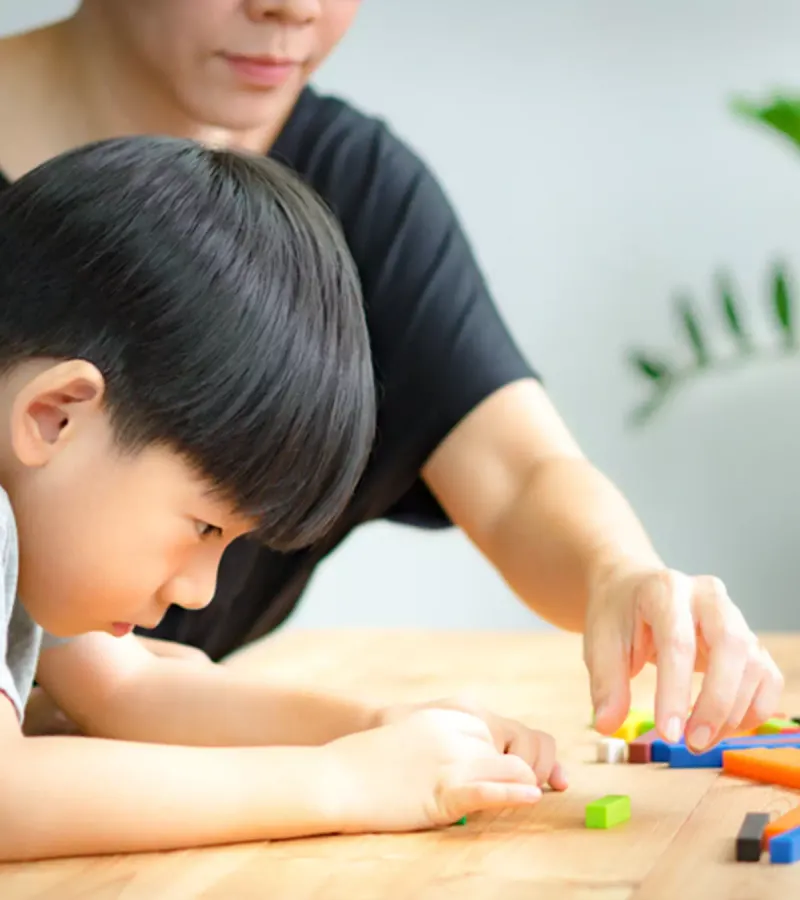Raising children as a single parent comes with its unique challenges, but it also offers an opportunity to create an incredibly strong bond with your kids. Through resilience, creativity, and a lot of love, you can thrive and show your children an example of grace and strength.
This guide shares 18 essential tips for single moms and dads, aiming to empower you with practical advice and encouragement. Embrace your journey with confidence, knowing you’re doing more than enough for your family and yourself.
1. Don’t try to be both parents—just be your best self
The pressure to fill both parental roles can be overwhelming, but the key is authenticity. Focus on being the best version of yourself, rather than trying to replicate a two-parent dynamic. This authenticity fosters trust and security in your children, teaching them the value of being true to oneself.
Find solace in the everyday moments, like sharing a meal or laughing over a funny story. These interactions are the building blocks of a supportive and loving environment.
Remember, your unique qualities are what make your family special. Embrace them, and let your children see the real you, as this honesty nurtures a genuine connection.
2. Keep your routines simple and consistent
Consistency provides a sense of stability for children, especially in a single-parent household. Simple, clear routines help manage expectations and reduce stress for everyone involved. Whether it’s a bedtime ritual or a weekly movie night, these routines create a comforting rhythm.
Simplicity is crucial; elaborate plans are often unnecessary. Focus on routines that are easy to maintain and enjoyable for both you and your kids. These can become cherished traditions over time.
Such consistency is a cornerstone of effective single parenting, providing a steady foundation in a world that sometimes feels unpredictable. It’s about creating a framework where love and support are constants.
3. Accept help without guilt
In the realm of single parenting, community support can be invaluable. Accepting help is a sign of strength, not weakness. It takes a village to raise a child, and welcoming assistance can make a world of difference.
Whether it’s a friend babysitting or a neighbor offering a meal, these gestures lighten the load. Recognize that accepting help is part of caring for yourself, which is crucial for being the best parent you can be.
Release the guilt that often accompanies asking for help. Instead, focus on the connections and community you’re building around your family, which provides a broader network of love and support.
4. Pick your battles with care
Choosing the right battles is a skill every single parent should master. Not every disagreement needs to escalate into a conflict. Assess the situation and decide if it’s worth the energy and stress.
Focus on clear communication, expressing your expectations calmly and respectfully. This teaches children how to navigate disagreements and prioritize what truly matters.
By picking battles wisely, you protect the emotional environment of your home, ensuring it remains a haven of peace and understanding. This approach fosters a more harmonious relationship with your children, emphasizing the importance of balance and prioritization.
5. Set clear, loving boundaries
Boundaries serve as a guide for children, helping them understand expectations and consequences. As a single parent, establishing these with love and clarity is essential. This foundation of trust and security encourages respectful behavior.
Explaining rules in a gentle, understanding manner ensures children feel heard and valued. It’s not just about discipline but about fostering a safe space where kids can thrive.
These boundaries are not restrictive but protective, offering children the freedom to explore within safe limits. They learn responsibility while feeling supported by your unwavering presence.
6. Build emotional check-ins into your week
Regular emotional check-ins strengthen the bond between you and your child. In a single-parent home, these dialogues are crucial for monitoring your child’s feelings and well-being.
Set aside dedicated time each week to talk openly with your child about their experiences, emotions, and any concerns. This practice cultivates a trusting relationship, where your child feels safe sharing their thoughts.
These moments of connection are foundational to emotional health, reinforcing that their feelings are important and valid. You learn together, growing closer through shared understanding and support.
7. Let your kids see your effort—not your stress
Children are perceptive; they pick up on stress and tension. As a single parent, strive to model positive coping strategies. Show your effort and dedication, which encourages resilience in your kids.
Transform daily tasks into opportunities for fun and learning, turning chores into bonding activities. This approach teaches healthy ways to handle pressure, highlighting perseverance and teamwork.
While it’s important to acknowledge challenges, focus on the positive actions you take. This nurtures a household atmosphere where effort is celebrated and stress is managed constructively.
8. Be honest without over-sharing
Honesty is crucial in single parenting, but it’s important to maintain age-appropriate boundaries. Share information that helps your child understand situations without overwhelming them.
When discussing family matters, be clear and truthful while ensuring your child feels secure. This honesty builds trust, creating a transparent and supportive environment.
Avoid burdening your children with adult concerns. Instead, focus on fostering a space where honesty is balanced with protection, allowing your child to feel safe and cherished.
9. Find at least one “you-only” ritual
Self-care is vital for single parents. Establishing a personal ritual provides a necessary pause, allowing you to recharge. Whether it’s enjoying a quiet cup of tea or a morning jog, these moments are sacred.
These rituals reinforce the importance of caring for yourself, nurturing your well-being so you can be fully present for your children. They serve as a reminder that your needs are important too.
By prioritizing personal time, you model healthy self-care practices for your kids. This balance of giving to others while maintaining personal boundaries is key to sustainable parenting.
10. Teach problem-solving, not just obedience
Fostering problem-solving skills equips your children with the tools they need to navigate life’s challenges. Encourage critical thinking and creativity, rather than focusing solely on obedience.
Engage in activities that require strategizing and discussion, like puzzle-solving or planning a day out. These moments teach your child to approach problems thoughtfully and collaboratively.
This approach not only strengthens their independence but also enhances your relationship. You guide them in learning how to think and make decisions, building confidence and resilience.
11. Celebrate wins—even the small ones
Every achievement, no matter how small, deserves recognition. Celebrating victories boosts confidence and motivation in your children, reinforcing their self-worth and encouraging further growth.
Create simple rituals or traditions to celebrate these moments, like a special dessert or a family cheer. This practice fosters a positive environment where achievements are acknowledged and cherished.
Your enthusiasm and support highlight your child’s talents and efforts, teaching them to find joy in their accomplishments. This positive reinforcement becomes a cornerstone of their personal development.
12. Forgive yourself often
Forgiveness is a powerful gift to give yourself. In the journey of single parenting, mistakes are inevitable, but they’re also opportunities for growth and learning.
Acknowledge your efforts and challenges, and allow space for self-compassion. This practice of forgiveness helps release guilt and embrace the present with renewed energy.
By modeling forgiveness, you teach your children the value of self-acceptance and resilience. It’s a testament to your strength and dedication, reminding you that you’re doing your best.
13. Stay connected to other adults who support you
Community is vital in single parenting. Maintain connections with supportive adults who understand your journey. These relationships provide emotional support, guidance, and friendship.
Regular interactions with friends or family offer a sense of belonging and stability. These connections help combat feelings of isolation, reinforcing that you’re not alone in your experiences.
Your network acts as a safety net, offering diverse perspectives and solutions. This support enriches your life and positively impacts your parenting, showing your children the value of community and collaboration.
14. Create moments of lightness, even in busy days
Laughter and play are essential, providing relief from daily stresses and strengthening family bonds. In the midst of busy days, seek out opportunities for fun and joy.
Whether it’s a spontaneous dance party or blowing bubbles in the backyard, these moments of lightness refresh your spirits and create lasting memories.
These experiences highlight the beauty of small joys, teaching your children to find happiness in everyday life. It’s about embracing play as a vital part of family dynamics, nurturing your relationship through shared laughter and delight.
15. Teach independence early
Empowering your children with independence prepares them for future success. Encourage them to take on age-appropriate tasks, fostering confidence and self-reliance.
Guide them patiently as they learn new skills, celebrating their progress. This empowerment builds a strong sense of responsibility and achievement.
By encouraging independence, you’re helping your children develop essential life skills. This proactive approach creates a nurturing environment where they feel capable and valued, ready to tackle challenges head-on.
16. Avoid comparing your journey to two-parent homes
Every family is unique, and comparisons can undermine the joy and success of your journey. Embrace the individuality of your single-parent household, celebrating what makes it special.
Focus on your strengths and the loving environment you’ve cultivated. Acknowledge that your path is different but equally valuable.
This acceptance fosters a positive mindset, encouraging your children to appreciate their family’s uniqueness. It’s about finding pride in your story, knowing that your efforts create a nurturing and fulfilling home.
17. Listen with your full attention
Active listening is a powerful tool in parenting, creating a space where children feel valued and heard. Give your full attention when they speak, demonstrating empathy and understanding.
This practice strengthens your bond and boosts their confidence, as they realize their thoughts and feelings matter. Encourage open dialogue by being present and engaged.
Through attentive listening, you model respect and compassion, essential qualities in strong family relationships. This approach nurtures a trusting and supportive environment for your child to grow.
18. Remind yourself: You’re doing more than enough
The role of a single parent can be daunting, often filled with self-doubt. Remind yourself regularly that your efforts are significant, and you are doing more than enough for your family.
Focus on the love, care, and dedication you pour into your parenting. Celebrate the big and small victories, acknowledging your hard work and resilience.
This affirmation cultivates a positive mindset, empowering you to continue on your path with confidence and grace. It’s a reminder that your journey is meaningful, and your impact is profound.



















